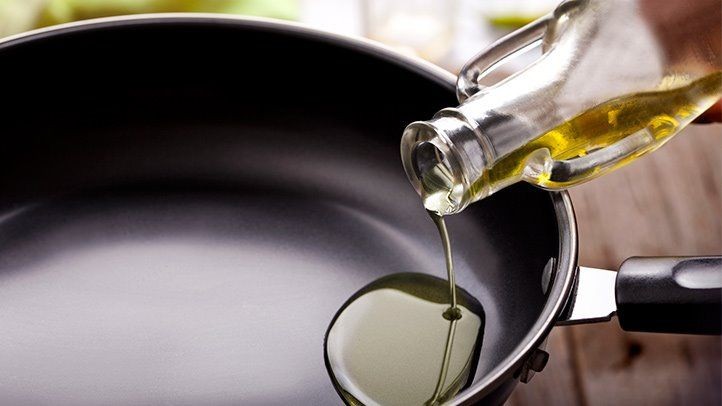In Melbourne specifically, there is a progressive change in the handling of bulk cooking oil as a new paradigm of the food service business. Businesses have the potential to save substantial amounts of money. The core idea behind this approach is to rethink spending and strategies to minimise costs while maximising impact and productivity. This method naturally aligns with ecological concerns, promoting environmental sustainability and protection.
The adaptation includes high technological systems of tracking and recycling, the improvement of waste disposal systems, and total compliance with the principles of CSR. Here, it becomes possible to discuss these aspects further, revealing how various food services and bulk cooking oil suppliers in Melbourne are already paving the way for the worldwide industry.
1. Technological Innovations in Oil Management
One key component of these new structures is technology in managing and filtering used cooking oil. Modern sensors and filters are widely implemented in Melbourne’s kitchens, where chefs and restaurant managers can track the compliance of culinary oil with specific parameters to make it perfectly suitable for use. Such systems evaluate parameters, including acidity, the amount of moisture, and food particles on the filter, to determine when the oil needs to be changed.
This precision prevents the premature disposal of oil, thus reducing waste. Moreover, these technologies contribute to maintaining consistent food quality. Therefore, restaurants can keep their oil in the correct condition and prevent such undesired consequences linked with degraded oils that spoil the customers and cease necessary health regulations.
2. Recycling and Repurposing Used Cooking Oil
Another critical aspect of Melbourne’s approach to cooking oil management is recycling used oil. Numerous facilities across the city specialise in processing used cooking oil, turning it into biodiesel and other bioproducts. This approach adds significant value by providing an environmentally friendly method of disposing of oil, preventing it from ending up in overcrowded landfills.
Additionally, it offers an alternative to the current reliance on fossil fuels, thereby reducing carbon emissions. The practice also financially rewards the restaurants since they uptake the products. Thus, by selling used oil to recycling plants, they can at least cover part of the costs related to oil procurement.
Furthermore, the widespread use of biofuels has remained high as more markets seek renewable energy sources. Thus, the revenues from recycling oil may go up.
3. Economic Benefits and Operational Efficiency
The economic advantages of efficient cooking oil management are significant. First, through proper tracking and management of the cooking oil, a business organisation can use minimal oil as it will likely be frequently conserved for longer hours. This results in a significant reduction in costs because, in this industry, the margins can be relatively thin.
Thus, efficient oil control leads to the minimisation of the costs of waste removal. Cooking oil disposal through the standard way can be expensive and adversely affect the environment.
Eliminating the time used to change the oil frequently and considering employing a recycling system helps to employ environmentalism and reduces the cost of disposal of waste.
4. Enhancing CSR and Public Image
Implementing sustainable practices in cooking oil has a very positive impact on a firm’s CSR factor. Today’s consumers are going further in choosing the products and services to buy by going for the products whose production does not harm the environment. Consumers see companies that adopt the above green strategies in Melbourne in a better light compared to organisations that do not practice green strategy.
These practices also set a precedent for environmental responsibility in the food service industry, encouraging other businesses to adopt similar methods. Together, this can go a long way toward reducing the overall carbon impact on the industry and the environment.
5. Challenges and Future Perspectives
Despite the clear benefits, transitioning to innovative cooking oil management systems takes time and effort. The initial cost of installing advanced monitoring and filtration systems can be prohibitive for smaller establishments. Additionally, the logistics involved in coordinating oil recycling can be complex, requiring robust management systems.
To tackle such problems, some companies in Melbourne have resorted to collaboration whereby several restaurant owners come together and share the expenses and responsibilities of recycling oil. Such collaborative efforts make the process more feasible for smaller players and foster a community-focused approach to sustainability.
Thus, the trend toward SAH’s sustainable management is expected to continue and grow more robust due to technological advancements and environmental legislation. As more businesses recognise effective oil management’s financial and ecological benefits, these practices could eventually become standard across the industry.
Final Takeaway
Bulk cooking oil management is a prime example of integrating environmental sustainability into business practices. Businesses can identify cost-saving opportunities by prioritising profit and maximising tangible assets while enhancing their public image. Such practices also contribute to the conservation of resources, underscoring the importance of sustainable strategies in commercial operations.
This model is a commendable benchmark for other cities and industries aspiring to adopt eco-friendly practices without sacrificing operational efficiency. It highlights that incorporating sustainability can yield significant ecological and economic benefits. This approach encourages broader adoption of similar strategies across various sectors, promoting a more sustainable future.
Melbourne’s initiative showcases that environmental responsibility and business profitability can go hand in hand, providing a template for others to follow. By emphasising the dual benefits of sustainability, this model inspires businesses and municipalities alike to commit to greener practices, demonstrating that economic and environmental goals are mutually exclusive but can be mutually reinforcing.

